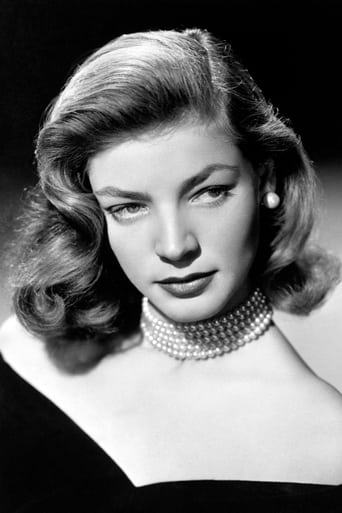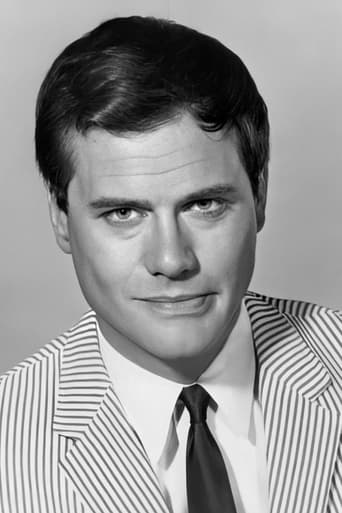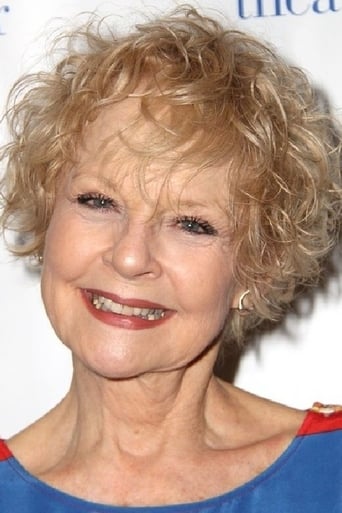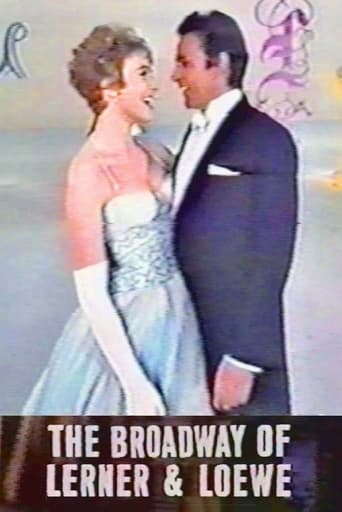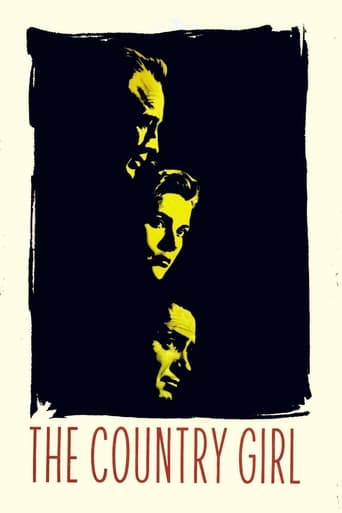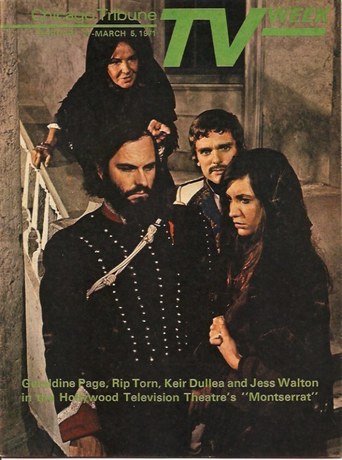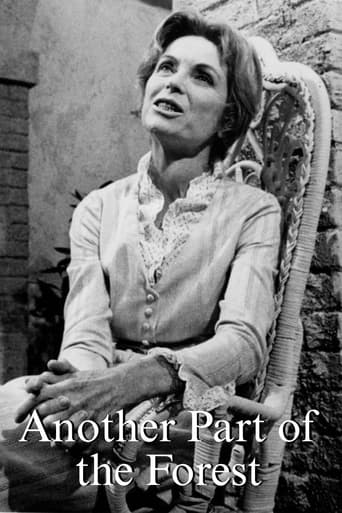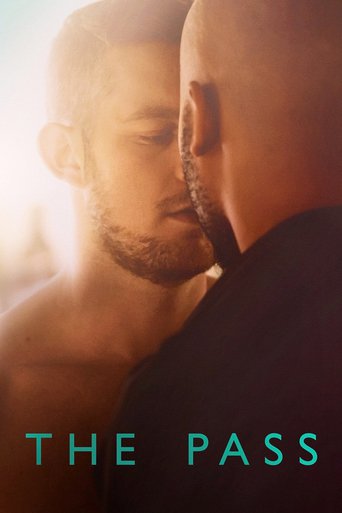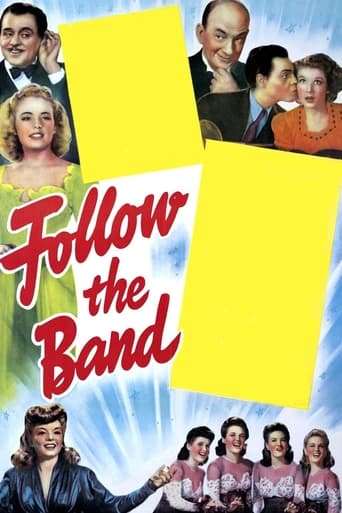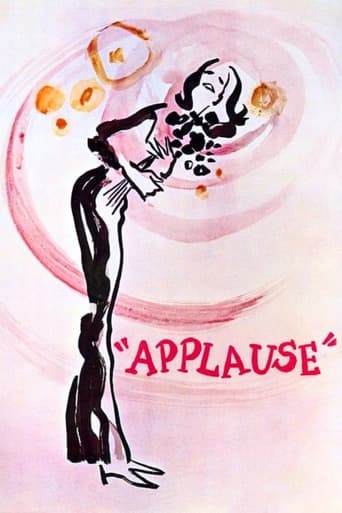
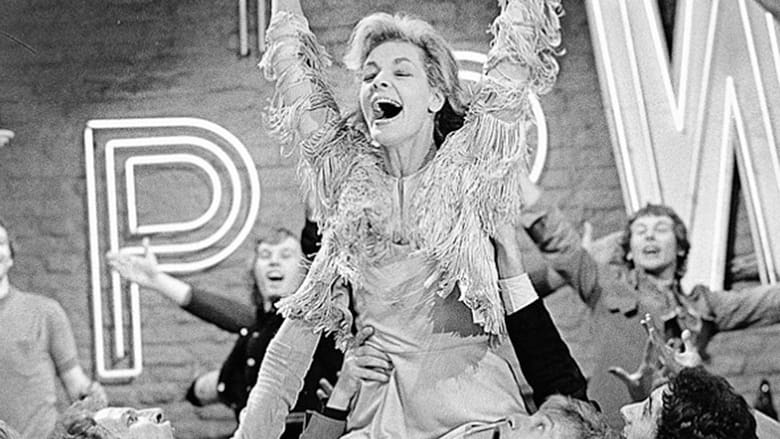
Applause (1973)
An aspiring actress, whose sugar-coated appearance belies her ruthless drive, worms herself into the life of an aging star and schemes to replace her on the stage as the star of a new play.
Watch Trailer
Cast
Similar titles
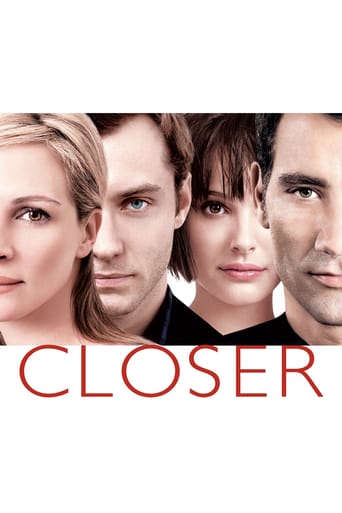

Reviews
Touches You
The Age of Commercialism
Highly Overrated But Still Good
Not sure how, but this is easily one of the best movies all summer. Multiple levels of funny, never takes itself seriously, super colorful, and creative.
This may not be really good, but it is fascinating to see if only for a 'legendary' performance, that being of Lauren Bacall as Margo Channing. I never found Bacall the least bit sexy in film, and although she came along some in the late 1940s and 1950s, I always thought she was a near-A star with a B- talent. I recall the discerning but often nasty critic John Simon once stating that there were certain stars, Bacall being one of them, who were simply naturally 'big' personalities and were able to demonstrate that much better on the stage than on the screen. Well, she does that here, and in spades. You cannot watch Bacall in KEY LARGO or TO HAVE AND HAVE NOT and get any idea that she has a personality and 'largeness' of aspect so totally on exhibit in this film. That being said, several reviewers here have somewhat denigrated this TV performance of hers, but they should remember that it is a THEATER performance basically filmed for the small screen. (Bette Davis, in ALL ABOUT EVE, gave a THEATER performance on the screen and got away with it, but she always gave THEATER performances on the screen, somewhat in the manner that Eleanor Parker and Faye Dunaway also did, and they all got away with it, sometimes gloriously well.) As for the rest of the TV show, it is quite updated to include not only some language that would have been verboten on the screen in 1950, but also in changing the Thelma Ritter role to that of a gay man, having an entire scene take place in a gay club, and changing the critic played by George Sanders to a show producer played by Robert Mandan. The producer isn't nearly as nasty and caustic (and funny) as is the Sanders character, but he is in the same position as is the critic to help Eve's upcoming career, and in the end, he gets that particular girl (poor guy), while Margo goes off to the domestic life with a good, but not grainy enough (in comparison to Gary Merrill) Larry Hagman. The songs for this show were so-so at best, but quite effective in putting over why people dedicate their lives to the theater (actually, this is done better than in the movie) and also why Margo has done so. And as iconic as Davis may have been in the movie, she is a big part of a great ensemble, whereas in the musical, Margo is 80% of the show. Whatever the outcome, and it is pretty good, this viewing just moved me to think of all the great stage performances that have not been preserved - like Andrews in MY FAIR LADY, Merman in GYPSY, Alfred Drake in just about everything he did, March and Eldridge in LONG DAY'S JOURNEY INTO NIGHT, etc., etc. Anyway, even as only a historical curiosity, this is well worth viewing.
While the Broadway musical this television special is based upon may be dated, the themes aren't. It's the story of a woman and her career, the presence of somebody who threatens both her career and her happiness, and how she rises above the usual temptations of how to survive while keeping your claws intact. "She" is Margo Channing (the fantastic Lauren Bacall, repeating her Tony Award Winning role), a Broadway diva extraordinare, at the height of her career, but on the threshold of middle age. Insecurities bring on jealousy and fear, especially when a young upstart (Penny Fuller) shows up, pretends to be her best friend, and betrays her simply to boost her own career as a rising actress and Broadway legend in the making.It is obvious that a young Margo Channing would never have done the things that Eve does here to rise from starlet to star. Margo may be tough and even bitchy at times, but she obviously has scruples. She was once a sexy screen siren and has moved into the theater simply for the love of the stage. Now she has two loves-the theater and a producer (Larry Hagman, taking over the role originated by Len Cariou), and isn't willing to let that go. As Margo learns the truth about Eve, she faces some important life lessons that might actually make her grateful to Eve for being that little push she needed to face the reality of aging gracefully.Bette Davis originated the role of Margo and also played a similar role as film actress Margaret Elliott in "The Star", and uttered the immortal screen line, "Fasten Your Seatbelts, It's Going to Be a Bumpy Night!". That becomes a big production number for the musical which was only just one of several dated musical numbers. One of them ("But Alive!") is set in a gay bar, and ends up in the television version which is pretty daring considering this was only four years after the Stonewall riots. I was in a production of this musical in the early 80's for my High School drama club, and they simply transfered the number to the Joe Allen's setting where the gypsies hung out. Here, the setting is extremely obvious with "Gay Power" highlighted on a huge sign in the background and very obvious gay men singing lyrics like "Chickie Chickie Ow! Ow Ow Ow!".One of the main reasons why this doesn't rate a higher rating is that the cheap video tape makes it look even more dated than it was on stage. If it wasn't for the stars being so incredible (Ms. Bacall tears "Welcome to the Theater!" to pieces), this would rank a 5 (**1/2). Attempts to update the book have not proved successful in getting a revival back on Broadway (although it was revived at the New York City Center for an Encores concert) while the same year's "Company" has been revived successfully several times even though the original production had a very early 70's sound as well. If you are lucky enough to find a copy of this, you can enjoy it, as long as you are aware that it works best as a fascinating ghost story.
APPLAUSE, the Broadway musical based on the classic ALL ABOUT EVE, was hastily filmed for television in 1973. The show first appeared on Broadway in 1970 and won Lauren Bacall a Tony Award for Best Lead Actress in a Musical. The story definitely lacks the bite of the original, obviously because it's a musical, but it's still the same story of Broadway star Margo Channing (Bacall) taking a star-struck fan (Penny Fuller) under her wing who pays her back by trying to take over her life. This production seems to have been thrown together in sort of a hap-hazard fashion and Bacall and company deserve better. The score by Lee Adams and Charles Strouse (BYE BYE BIRDIE) includes "But Alive", "The Best Night of My Life", "Backstage Babble", "One of a Kind", and the classic title tune. Bacall works hard at making Margo likable as does Larry Hagman as Bill Sampson, Margo's much younger boyfriend. A curio to be sure, but worth a look if you can find it.
'Applause' was a Broadway musical based on the cult movie 'All About Eve', but it differs significantly from that film. After Lauren Bacall starred as Margo Channing in 'Applause' on Broadway, she repeated her starring role in the West End production of that show in London. In one of the most ironic casting choices in history, Bacall was replaced in the Broadway cast by Anne Baxter. In the film 'All About Eve', Baxter had played Eve Harrington, the would-be actress who schemed to take over Margo Channing's life. In the cast of 'Applause', Baxter finally got that chance.'All About Eve' and 'Applause' were indirectly based on a true incident in the career of European actress Elisabeth Bergner. Screenwriter Joseph L Mankiewicz borrowed the name 'Eve Harrington' from the Preston Sturges film 'The Lady Eve', in which a scheming woman named Harrington uses 'Eve' as her criminal alias.I was peripherally involved in the London production of 'Applause', as a minor staffer in the producer's office. In 1973, I hadn't yet seen the film 'All About Eve', and I couldn't understand why there was so much fuss over this movie. One of the songs in 'Applause' is called 'Fasten Your Seat Belts (It's going to be a bumpy night)', but the song is performed at a party and has nothing to do with air travel. I didn't understand at the time that this song was inspired by a famous line in the original film.'All About Eve' begins with a ceremony for the Sarah Siddons Award. This was (at the time) a fictional award named for a real stage actress; following the film's success, there is now a genuine Sarah Siddons Award. For the Broadway and London stage productions of 'Applause' (and this TV version), the trophy was changed to the Tony Award, with permission from the American Theatre Wing (who give out the real Tony Awards). In the opening scene of the stage musical, there was an awkward tech cue as we hear the thoughts of famed actress Margo Channing (Bacall) in pre-recorded voice-over. This was done much more easily in the TV version. Bacall waves a Tony Award overhead, wearing a sleeveless gown that gives us a full view of her shaved armpits. The camera shifts into slo-mo, to make sure we don't miss those armpits. She then goes to a party where the guests engage in peculiar scat-singing. ('Ba-ba-bee-ba!')'Applause' is notable for having a script by Broadway veterans Betty Comden and Adolph Green but songs by Lee Adams and Charles Strouse, the team best known for the score of 'Bye Bye Birdie'. Comden and Green usually wrote the lyrics for their scripts; for 'Applause', they were brought into the project after Adams and Strouse had written a score.What is it about gay men and aging actresses? For reasons that elude me, the movie 'All About Eve' is some sort of gay rite of passage. The musicals of Comden and Green contain large amounts of material that's gay-friendly, but not explicitly so. 'Applause' is the exception. With its background of Broadway musicals, the gay aspects of the New York theatre get far more than a look-in here. In the original film, Margo Channing's dresser was an older woman; in 'Applause', this character is a handsome young man named Duane Fox. She invites him to escort her to an after-theatre party. When Duane demurs that he's got a date, Bacall theatrically tosses her long tawny hair and says 'Bring him along!'.The most bizarre scene in this TV special occurs when gayboy Duane brings Margo to his favourite bar in Greenwich Village, where lots of good-looking young men want to meet this aging actress. (Not another woman is in sight; I guess none of these guys can get a girlfriend.) Bacall performs a musical number in front of a wall of multi-coloured neon lights, each light forming a letter of the alphabet. These letters appear to be randomly scattered across the wall, but if you follow them in a knight's tour they spell out "GAY POWER", with one extra letter as a decoy. As Margo leaves, a young man named Danny shouts: 'I love her!'A far more enjoyable number is the title song, performed by would-be actors who work as waiters and waitresses at Joe Allen's. (In the 1970s, this was a real restaurant in the Broadway theatre district, noted for its distinctive red and white tablecloths.) For Bacall's pleasure, all the boys and girls at Joe Allen's perform an elaborate dance number referencing other Broadway musicals, ranging from 'Oklahoma!' to 'Oh Calcutta!'.There's some contrived dialogue here that wasn't in the movie. When Karen Richards feels guilt for draining the gas tank of Margo's car, she imagines she hears comments about this. ("You're a gas!" "T'anks!") More enjoyable is a scene that wasn't in 'All About Eve', with Karen and her husband Buzz (named 'Lloyd' in the movie) attending a party. All the guests wear signs on their backs, with each sign bearing the name of a famous person. Since no guest can read his own sign, they must respond to clues from other guests to learn who they are.'Applause' is a good (but not great) musical, adapted from a movie that worked better as a film. The best elements here are direct references to Broadway's theatre community that weren't in the film, such as the gypsy-robe scene and the gay subculture. But 'Applause' can never be revived except as a period piece, since it makes absolutely no mention of Aids. I'll rate this enjoyable TV version 6 points out of 10, and I wish someone would explain to me why gay men are so fascinated by aging actresses.
